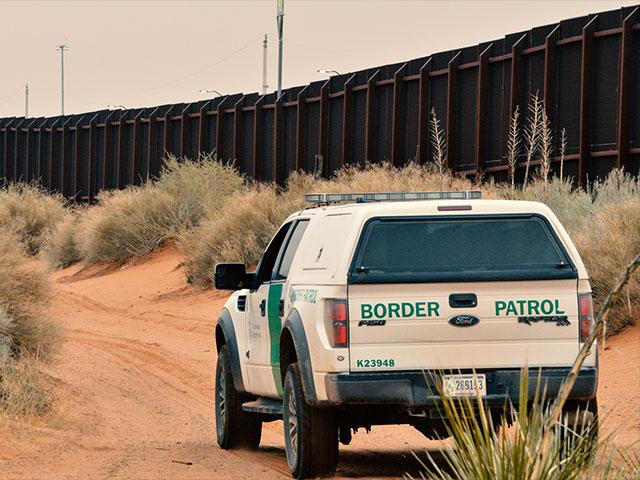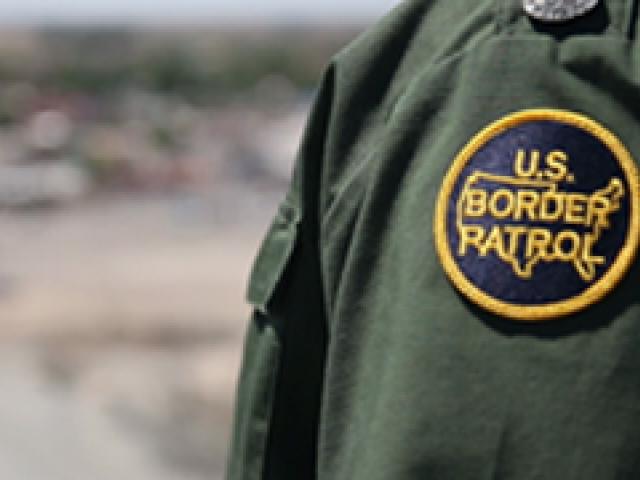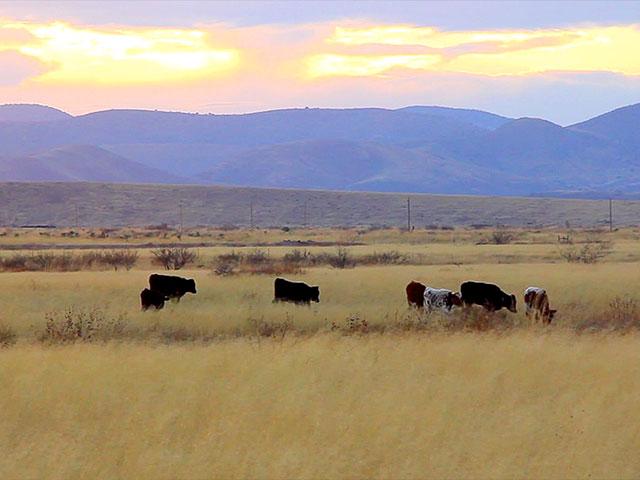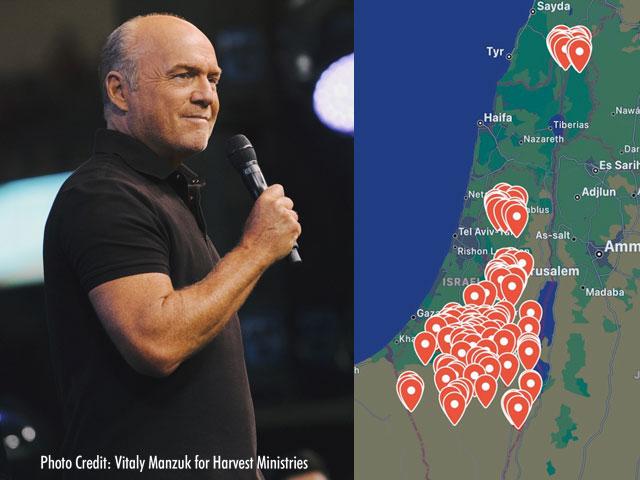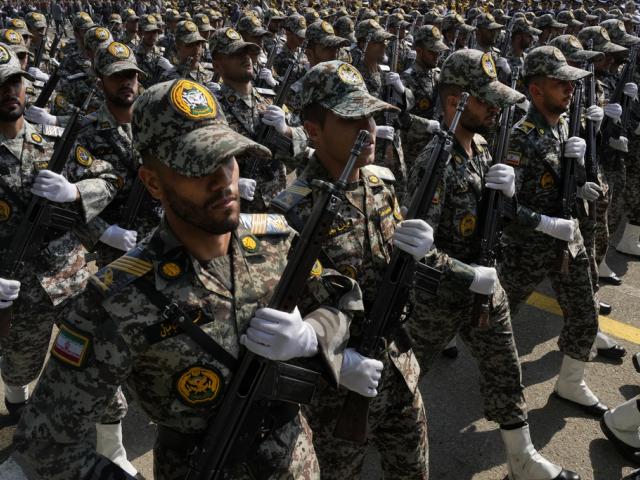ARIZONA-MEXICO BORDER – On his 50,000-acre ranch in southern Arizona, Jim Chilton watches over some 900 cows and bulls while keeping a close eye out for the thousands of drug smugglers and illegal immigrants that cross his land every year. The surveillance cameras he has mounted across the ranch tell the story.
"I have evidence, hard evidence," he tells CBN News, "of people coming through and they're mainly drug packers bringing into the U.S. – marijuana, cocaine, meth and heroine."
The video Chilton watches on his dining room table shows group after group of young men, often dressed in camouflage, wearing backpacks and slipping across Chilton's ranch. Based on his video from 2016, he estimates that 3,500 people crossed last year. They travel on 200 trails scattered throughout the property.
His front porch collection of "carpet shoes" tells another part of the story. Those on the run have taken to wearing these "shoes" with carpet on the soles as a means of erasing their foot prints and eluding Border Patrol agents.
Driving to the Border
Chilton took CBN News on a bumpy two-hour drive from his ranch house to the southern tip of his property that borders Mexico. Chilton bought the ranch back in 1987 and says drug smuggling and illegal immigration was not an issue then. It all started in the 1990s he says, and continues today, although he believes the numbers have declined.
Chilton described encounters with the illegal border crossers as we drove. As we rounded one corner he remembered "about 20 guys dressed in camo with big backpacks ran right up this way and up this hill…the guy in front had an AK47."
It's clear to Chilton and the Border Patrol that the Sinaloa drug cartel deploys scouts on this land to guide its packers to safety. One time, Chilton reported his discovery of four bales of marijuana to Border Patrol, well aware that the cartels could take revenge against him or his family. It's a reality he finds sobering.
Arriving near the border, Chilton pulled out his rifle and walked several hundred feet to the line with us, noting that it's merely a four-strand barbed wire cattle fence that stands between his property and Mexico. The barbed wire fence extends for five miles on his ranch.
On the Mexican side, a number of roads leading to the fence indicate that the area has become a prime spot for illegal entry into the U.S. The barbed wire fence is one reason. Also, the nearest Border Patrol station is several hours away and cell phone coverage in the area is non-existent.
Need for a Wall "Obvious"
The lack of law enforcement along the border here disturbs Chilton. Although we spotted several Border Patrol agents during our trek, the short comings are obvious. It's a rough, slow ride along dirt roads to access the border here. There's no road along the border for vehicles to patrol and people can easily slip over or under the fence.
"It's just very obvious that you need a wall," said Chilton, "you need a road next to it and you need forward operations bases."
CBN News has reached out to Border Patrol for comment about the border strategy in Arizona but has not received a response.
Chilton and other ranchers here believe the U.S. must secure the entire southern border—all 1,989 miles of it. They believe a 20-foot high modern wall in nearby Nogales has simply funneled illegal traffic to their remote areas.
Rancher Dan Bell, president of the ZZ Cattle Ranch, showed us where the Nogales wall ends. It's on his property and the contrast is stunning—a 20-foot high fence that abruptly morphs into a short, barbed-wire fence similar to the one on Chilton's ranch. Immigrants and smugglers can easily get through here Bell says.
"It's as simple as people coming through in large groups just getting a pair of wire cutters and cutting through the fence" he explained.
Bells feels a little better about security than Chilton and for good reason. His ranch is much closer to the Nogales Border Patrol station and he said "we've had some road systems put in. We've had technology come in and with the addition of more agents in the area we have seen improvement."
Bell points to a surveillance tower on his land that beams real-time images to Border Patrol agents and talks about ground sensors that detect movement.
He admits, however, that gaps remain and that he feels unsafe on parts of his ranch. "In the areas where we're more remote—where we don't have cell phone service, where there's very few roads—they're far and few between—you do think about things like that," he said.
Not Everyone Wants a Wall
Not everyone on the border agrees with President Trump's plan to build a wall on the U.S.-Mexico border. That includes many residents in Nogales and Santa Cruz county sheriff Tony Estrada.
"It sounds good to everybody," said Estrada "'we've got a problem—we'll just build a wall and it will stop everything.' That's a fantasy. It's a fantasy. It will help but it's not going to solve the problem."
Estrada says people have and always will find ways to overcome physical barriers. He's watched for decades as determined immigrants and smugglers learned how to quickly scale a wall or tunnel underneath. Also, he says, a wall doesn't solve the real problem. "You've got to look at what is bringing people here," he said.
Estrada believes that demand for illegal drugs in the U.S. is a key issue that must be addressed in order to stop the smugglers. He also believes that many in Mexico and central and southern America are motivated simply by the multitude of opportunities to be found in the U.S. and poor living conditions in their home countries.
In the last two decades, U.S. dollars spent on border security have done nothing but go up and the number of Border Patrol agents has increased by 500 percent. While Estrada believes that money could be better spent, ranchers like Chilton and Bell believe it has helped to reduce the flow of immigration and drugs.
Chilton also points out that funds spent on border security can reduce costs in other areas like prosecuting illegal immigrants and fighting the forest fires that drug packers periodically start on rancher lands.
For now, Chilton and Bell maintain an uneasy truce with those vying for control of their land. In the spirit of compassion, both maintain multiple drinking fountains across their property to provide life-saving relief for those who need it. Still, they remain vigilant for any possible encounter.
"When those instances happen you just—you go opposite ways," said Bell, "You say 'good morning' and go the opposite way and hope for the best."
"It's pretty frightening," said Chilton, "but I'm a cowboy, not a wimp and I'm sticking here."
Did you know?
God is everywhere—even in the news. That’s why we view every news story through the lens of faith. We are committed to delivering quality independent Christian journalism you can trust. But it takes a lot of hard work, time, and money to do what we do. Help us continue to be a voice for truth in the media by supporting CBN News for as little as $1.










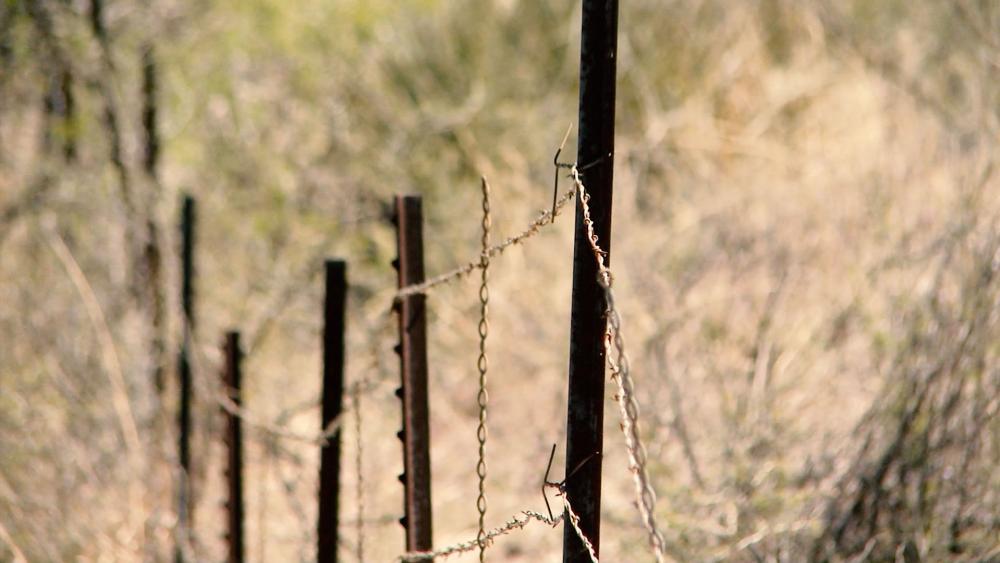
 Support CBN News
Support CBN News



